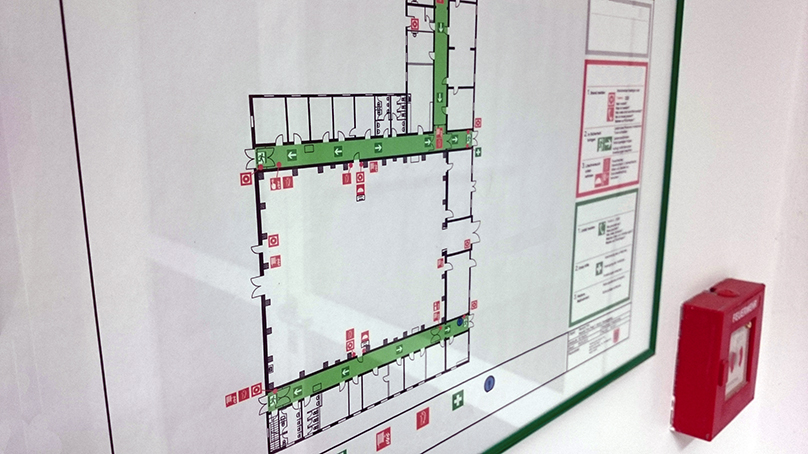
A fire in your home can ignite and spread quickly and you may only have minutes to get out safely. Planning in advance can help ensure everyone in your home gets out and stays out in the event of a fire or carbon monoxide exposure.
“Schools and businesses run fire drills regularly, but individual households should do the same,” said Doug Sinclair, Public Education Coordinator with the Winnipeg Fire Paramedic Service (WFPS).
Sinclair recommends everyone create and practice a home escape plan.
Create a plan together
Set time aside to devote to creating an escape plan. You can get the whole family involved. Create a map of your home and label at least two exits from every room. Think about young children, older adults, or anyone who might need extra assistance leaving your home quickly and make sure your plan includes details about how you will help them. If they cannot leave the home on their own, they may need to signal responders for help.
“In a fire, you may not be able to access every exit, so you’ll want to think about where those alternate exits are located in your home. It may be a door or a window. Make sure your children know how to open a window if they need to get out quickly,” said Sinclair.
Know the location and condition of your alarms
Label the location of your smoke and carbon monoxide alarms on your plan. This is a good time to familiarize yourself and your children with the meaning of different alarm sounds. Take the opportunity to test your alarms and ensure they’re in good working condition. You should test your smoke alarms monthly.
“Your alarms should be located near sleeping areas where everyone can hear them. When you’re asleep, you need them most because you may not smell smoke or see flames as quickly as when you’re awake,” said Sinclair.
Decide on a meeting place
Choose a meeting place, outside and away from the building. Make sure everyone knows where to meet. Plan to call 9-1-1 using a cell phone or from a neighbour’s home. If you have children, talk to them about what to expect when they call 9-1-1. Everyone should know your address, and it should be clearly marked on the outside of your home. Remind everyone to get out and stay out in an emergency.
Practice your plan
Do a walkthrough of your plan so you can identify any weaknesses or problems. Now is the time to adjust and fix the plan so you’re ready. Set a reminder or mark your calendar to practice this plan twice each year. Your home may change over time and it’s important to refresh everyone’s memory about your escape plan. This way, if you do need to evacuate, you’ll be prepared.
Originally posted on October 12, 2023
